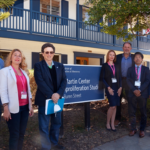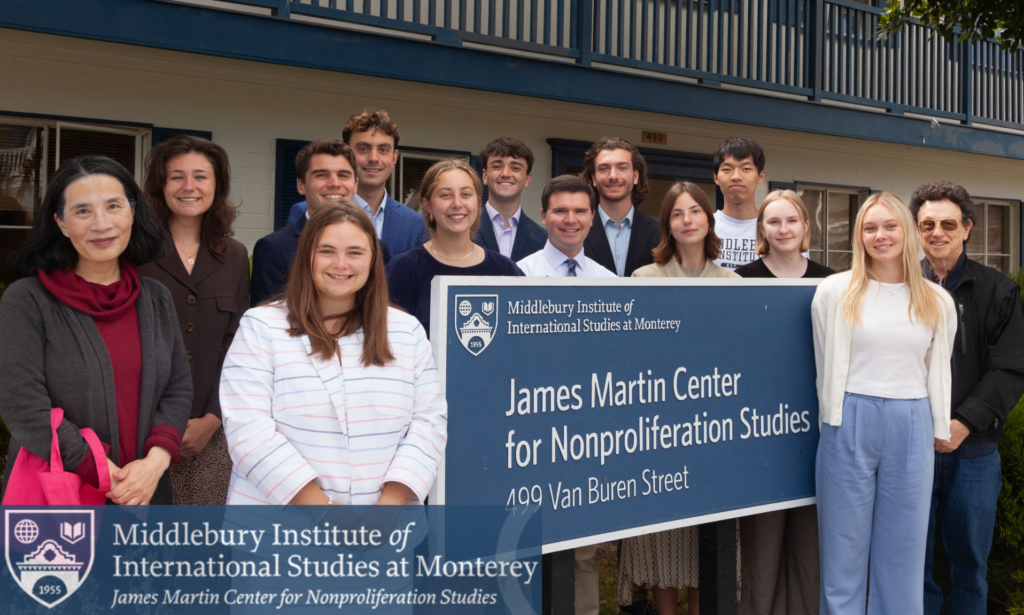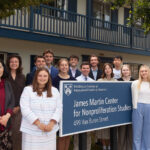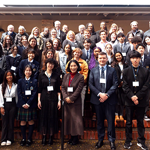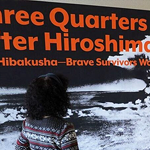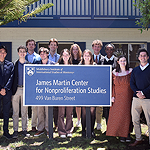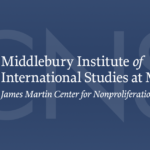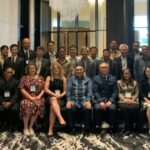- Academics
- Courses
- Fellowships
- Training
- Internships, Scholarships, and GRAs
- Younger Students
- Resources
Call for CNS Visiting Fellows Program Applications
Apply for the Spring and Fall 2026 Visiting Fellows program.
About
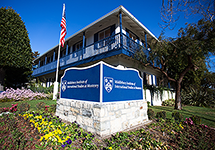
CNS is located at the Middlebury Institute of International Studies at Monterey, a graduate school of Middlebury College.
CNS strives to combat the spread of weapons of mass destruction (WMD) by training the next generation of nonproliferation specialists and disseminating timely information and analysis. It is the largest nongovernmental organization in the United States devoted exclusively to research and training on nonproliferation issues.
Apply
- Internships, Scholarships, and GRAs | Higher Education
- Visiting Fellowships | Working Professionals and Higher Education
- Summer Undergraduate Fellowship Program | Undergraduate Students
- Critical Issues Forum (CIF) | High School Students
Academics
- MA in Nonproliferation and Terrorism Studies (NPTS): The Middlebury Institute of International Studies NPTS degree is focused on building the skills you need to work professionally to curtail the spread of weapons of mass destruction (WMD) and threats from violent extremism and financial crimes.
- Certificate in Nonproliferation Studies: Earn a certificate in as little as one semester.
Upcoming Courses
View the full list of upcoming and recent courses.
Featured Course Reports
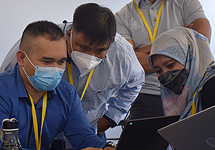
WMD Terrorism Threats: Assessing and Prosecuting
Eighteen senior and mid-level government employees from Malaysia and the Philippines traveled to CNS for a two-week in-person workshop.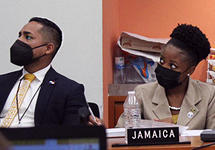
Latin American and Caribbean Diplomats Trained in the Legacy of Nobel Peace Laureate García Robles
The 8th Nuclear Disarmament and Nonproliferation Summer School for Latin America and Caribbean diplomats.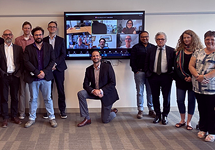
Workshop Held in DC on the Constitutional History of the NPT
The scholars are currently working on a Carnegie-funded book project on the Treaty on the Nonproliferation of Nuclear Weapons.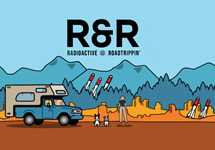
A Pit Stop on Natasha Bajema’s Radioactive Road Trip
Dr. Bajema visits historic and current US nuclear weapon complex sites to engage the public in nuclear risk reduction, nonproliferation and disarmament.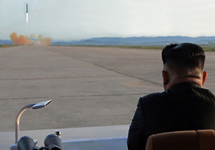
Short Course: Tracking North Korea’s WMD and Sanctions Evasion with Open Sources
New course teaching cutting-edge research techniques, tools, and resources used by CNS experts.
Upcoming Fellowships
Applications for CNS International Visiting Fellows program
CNS offers a prestigious international Visiting Fellows program aimed at full-time professionals with demonstrated interests and engagement in WMD nonproliferation, disarmament and arms control fields, including nuclear, biological, and chemical safety, security and public safety.
Visiting Fellows are typically selected from emerging and developing countries, and could include diplomats, experts, and officials from national governments; experts from think tanks, academia, and industry; researchers/scientists/engineers; university instructors, and other related professionals.
The program is offered on location at the Middlebury Institute of International Studies (MIIS) in Monterey, CA during the Spring semester (early February to mid-May) and again in the Fall (early September to mid-December). Qualified candidates should submit applications by March 31 for the Fall program, and by September 15 for the Spring program.
- The program is designed to assist junior and mid-career policy and technical professionals to obtain an in-depth understanding of legal, political, regional, and technical aspects of WMD nonproliferation.
- Develop the skills necessary to have a positive impact on arms control and nonproliferation policy in their respective countries and in the international arena.
Training
- Certificate in Nonproliferation Studies: Designed for professional training in the control, reduction, and elimination of weapons of mass destruction (including chemical, nuclear, and biological weapons).
- Young Women in Nonproliferation Initiative: Featuring articles, learning tools, and resources for women who are interested in stopping the spread of weapons of mass destruction (WMD) and is part of a larger effort to inspire more women within higher education to WMD-related research and careers.
- New Tools for Verification Research and Analysis (PDF): Satellite imagery, 3D modeling, geospatial data, new media, and virtual reality applications.
Internships, Scholarships, and GRAs
- Internships & Fellowships
- Scholarships at The Middlebury Institute: CNS is a research center at The Middlebury Institute, that offers a variety of competitive scholarships toward our master’s programs for both U.S. and international students.
- Graduate Research Assistant (GRA): Work-study positions reserved ONLY for MIIS students currently enrolled in classes.
Younger Students
Summer Undergraduate Fellowship Program
Applications for Summer 2025 are now open!
Participants in the program conduct research on issues related to the spread and control of weapons of mass destruction (WMD), including: nuclear, chemical and biological weapons, and regional security issues in the former Soviet Union, Eurasia, East Asia, South Asia, and the Middle East. Interns may also develop their own research projects under the guidance of senior CNS faculty. The training program starts in June and continues for two to three months.
Critical Issues Forum for High Schools
The CIF program is designed to promote awareness of nonproliferation and disarmament issues as well as develop critical thinking skills among high school students from around the world, including the United States, Japan and Russia, through educational outreach activities. Through the program, students develop appreciation and understanding of different national and cultural perspectives on complex but vital international security issues.
Resources & Tools
For Educators
- Teaching Tools for Professors
- CIF Conference: High School Teachers participating in the conference are also trained in the supporting workshops
- Applying New Tools to Nonproliferation: A Nuclear Detective Story
Fundamentals
Research by CNS for the Nuclear Threat Initiative (NTI)
- NTI Education Tutorials: The tutorials were made to build understanding among a new generation of experts and leaders on these often complex issues. The interactive tutorials include overviews of key issues, a glossary, maps, quizzes and more.
- Countries: Overviews of each country’s nuclear, chemical, biological, and missile programs as well as participation in treaties and regimes
- Treaties & Regimes: Includes full text documents, country memberships, an analytical overview, and a chronology tracking ongoing work and related developments. All entries are updated regularly, as events warrant.
- Facilities: Nuclear, chemical, biological, and missile facilities of the countries profiled on the NTI website, often including locations on a Google map.
- Glossary: Commonly used terms in nonproliferation and disarmament studies.
Topics of Interest
Research by CNS for the Nuclear Threat Initiative (NTI)
- Missile Test Database: Interactive visuals, expert analysis, and raw data concerning ballistic missile and satellite launch vehicle (SLV) launches by North Korea and Iran. The databases are routinely updated. Additional countries may be added in future.
North Korea | India and Pakistan - Global Trafficking Database: Nuclear and other radioactive material that has been lost, stolen, or is otherwise out of regulatory control. (Free and open access information)
Resource Collections
Research by CNS for the Nuclear Threat Initiative (NTI)
- 3D Missile Model Collection: Interact with 3D models of ballistic and cruise missiles, organized by country.
- Civilian HEU Reduction and Elimination Resource Collection: Read research that tracks global civil highly enriched uranium (HEU) holdings, discusses common applications and alternatives, and profiles countries that produce, utilize, or export civil HEU. Included are details of domestic and international efforts designed to address civil HEU security, and remaining implementation challenges.
- Nuclear Disarmament Resource Collection: Find information and analysis of nuclear weapons disarmament proposals and progress worldwide, including detailed coverage of disarmament progress in countries who either possess or host other countries’ nuclear weapons on their territories.
- Submarine Proliferation Resource Collection: Discover the submarine capabilities and imports/exports of select countries around the world. The main focus is on technological improvements to global submarine fleets, such as the spread of nuclear propulsion and Air Independent Propulsion (AIP) technologies, which increases the capability of submarines to deliver weapons of mass destruction (WMD). Also tracked is conventional submarine proliferation in potential global flashpoints, particularly the Middle East, South Asia, and Southeast Asia. See also: 3D Submarine Model Collection
- UNSCR 1540 Resource Collection: Read about Resolution 1540, which requires all states to implement measures aimed at preventing non-state actors from acquiring nuclear, biological or chemical weapons, related materials, and their means of delivery.

